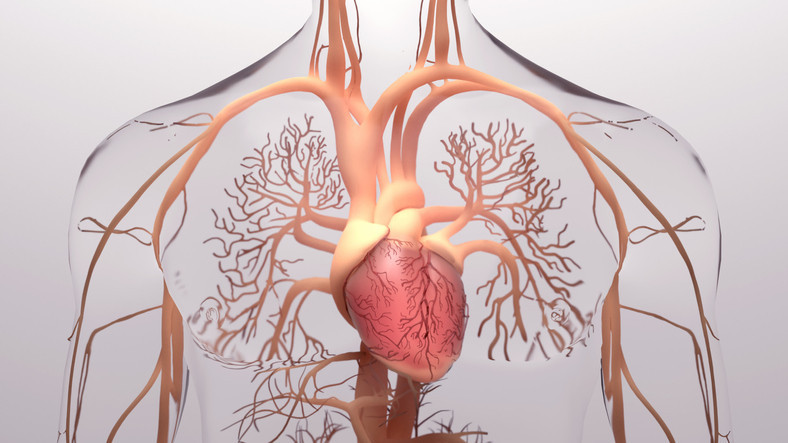
5 timeless habits for better health

What are the symptoms of prostate cancer?

Is your breakfast cereal healthy?

When pain signals an emergency: Symptoms you should never ignore

Does exercise give you energy?

Acupuncture for pain relief: How it works and what to expect

How to avoid jet lag: Tips for staying alert when you travel

Biofeedback therapy: How it works and how it can help relieve pain

Best vitamins and minerals for energy

Should you take probiotics with antibiotics?
Heart Attack Archive
Articles
Sleep added to list of essential healthy heart habits
The American Heart Association added sleep to its list of factors for cardiovascular health. The others are a healthy diet; physical activity; low levels of nicotine exposure; and healthy levels of weight, cholesterol, blood sugar, and blood pressure.
Bleeding problems: Know your risk
Anti-clotting medications have a well-known and fairly common effect: a heightened risk of bleeding. Being older, having certain health conditions, and taking certain drugs (including popular over-the-counter pain relievers) can increase this risk. Minor bleeding includes bleeding gums after toothbrushing or flossing and nosebleeds that take longer than usual to stop. Signs of more serious bleeding (which requires immediate medical care) include tea-colored, pink, or red urine; blood in the stool or black, tarry stools; or a sudden, severe headache.
More protection for your heart? It's just a shot away
A yearly influenza vaccine may help lower the risk of serious cardiovascular complications, especially among people who've had a recent heart attack. Pneumonia and shingles vaccines also help reduce heart attack and stroke risks. Early fall is a good time to get back on track with these vaccines. Several different types of flu shots are available; experts advise getting whichever one is most readily available. For those ages 65 and older who have a choice, three vaccines (Fluzone High-Dose Quadrivalent, Flublock Quadrivalent recombinant, and Fluad Quadrivalent adjuvanted) may offer slightly better protection than the regular-dose shot and are the preferred choice.
A virtual approach to healing the heart
Cardiac rehabilitation, which teaches heart-healthy habits coupled with supervised exercise, can help people with heart conditions prevent future problems. Some parts of the program can be done at home, delivered through a computer, tablet, or smartphone. Known as virtual cardiac rehab, this approach offers several advantages over conventional rehab, such as avoiding the time and expense of traveling to multiple sessions during the week.
The lowdown on "good" cholesterol
Long touted as beneficial for heart health, high-density lipoprotein (HDL) is more complicated than experts once thought. Some forms of HDL grab cholesterol from the bloodstream and other tissues and transport it to the liver, where it's recycled or disposed, but other types are neutral or perform the opposite action. Most drugs that raise HDL don't seem to prevent heart disease, and very high HDL levels may even be linked to a higher risk.
The heart disease gender gap
Women don't fare as well as men when it comes to getting treatment for coronary artery disease. Social and cultural factors may help explain this discrepancy. Women tend to downplay their symptoms and delay seeking treatment. But health care providers may be contributing to this problem, too A major underlying issue may be the underrepresentation of women in clinical trials of heart-related conditions.
Putting potassium in perspective
Too much or too little potassium can harm the heart. Diet, medications, and kidney function can affect the body's potassium level. Dietary potassium helps keep blood pressure in a normal range, but most Americans don't consume enough of this mineral. However, people taking medications that raise potassium levels—which includes certain drugs to treat high blood pressure and heart failure—should avoid salt substitutes made with potassium chloride.
How good is your cardiometabolic health — and what is that, anyway?
An analysis shows less than 7% of adults in the US meet the criteria for optimal cardiometabolic health. Taking small steps to help control and improve key risk factors can reduce the odds of a heart attack or stroke.
More benefits of a Mediterranean diet
A randomized trial published May 14, 2022, in The Lancet found that people with heart disease who ate a Mediterranean diet for seven years had a 26% lower risk of having a heart attack or stroke, compared with people who ate a low-fat diet.
What's driving heart attacks in younger adults?
Seven factors appear to account for most first heart attacks in people ages 55 and younger: diabetes, depression, high blood pressure, current smoking, family history of early heart attack, low household income, and high cholesterol.

5 timeless habits for better health

What are the symptoms of prostate cancer?

Is your breakfast cereal healthy?

When pain signals an emergency: Symptoms you should never ignore

Does exercise give you energy?

Acupuncture for pain relief: How it works and what to expect

How to avoid jet lag: Tips for staying alert when you travel

Biofeedback therapy: How it works and how it can help relieve pain

Best vitamins and minerals for energy

Should you take probiotics with antibiotics?
Free Healthbeat Signup
Get the latest in health news delivered to your inbox!
Sign Up











